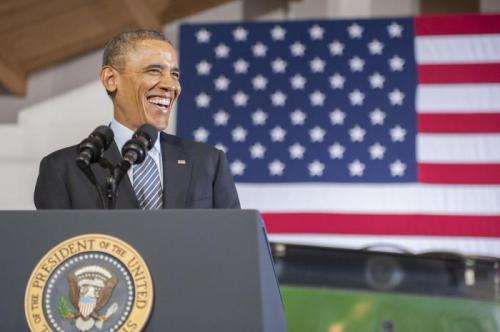Minority political candidates just need a chance

It's not necessarily voters who should be blamed for the lack of minorities in state legislatures, but instead the two major political parties for not recruiting enough candidates, indicates new research by a Michigan State University scholar.
Eric Gonzalez Juenke analyzed nearly 10,000 statehouse elections in 2000 and 2010 and found Latino candidates were on the ballot just 5 percent of the time. But when Latinos did run for office, they won just as often as their white counterparts – even in districts where most voters were white.
Juenke's other research suggests the same holds true for black and other ethnic minority candidates.
"Thus, the puzzle of minority underrepresentation in the United States shifts away from voters and moves instead toward the parties who are responsible for recruiting, training and supporting minority candidates for office," said Juenke, assistant professor of political science.
Published in the American Journal of Political Science, the study is the first large-scale investigation of minority candidate underrepresentation at the state level and its effects on the election of minority officeholders.
A wealth of past research suggests many voters are biased against candidates of different ethnicities and races. This study does not refute that finding. Instead, it suggests white voters are more likely to prioritize party affiliation over race or ethnicity when considering a candidate.
Despite their low representation in elected office, Hispanics are the nation's largest racial minority, making up 17 percent of the population – a number that's projected to grow to 31 percent by 2060, according to the census.
Lack of minority representation in elected office has fueled many lawsuits against how political districts are drawn. But Juenke said district makeup may not be as important as many think.
"We don't have to pack districts with minority voters in order to get minority representatives in legislatures," he said. "What we need to do is start running more minority candidates."
On a larger level, Juenke said President Barack Obama, a black Democrat, and U.S. Sen. Marco Rubio, a Latino Republican, are good examples of minority politicians who won elections in which a majority of constituents were white.
Journal information: American Journal of Political Science
Provided by Michigan State University















